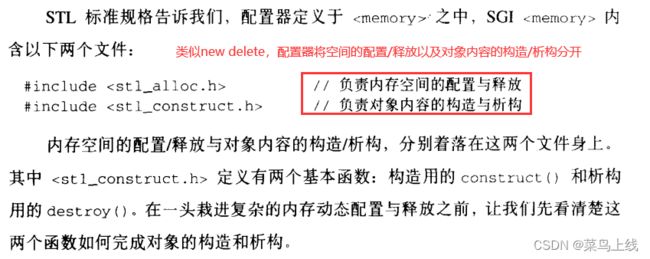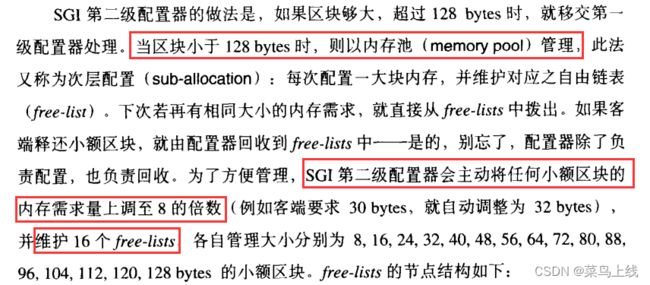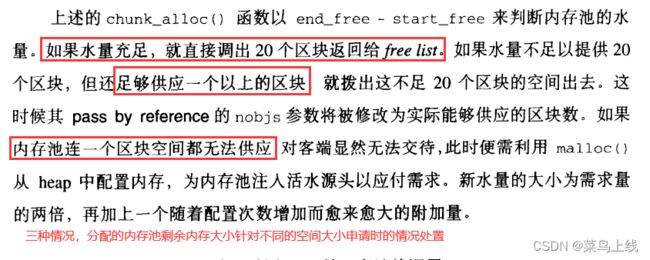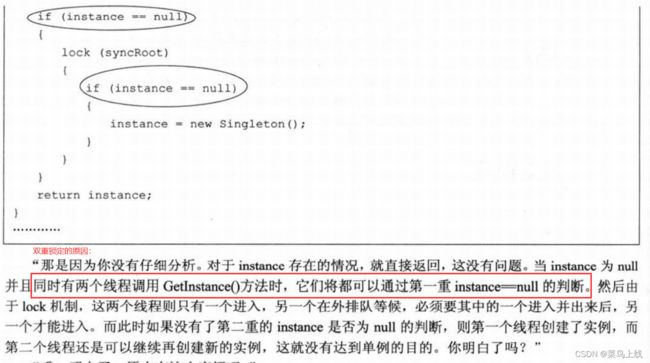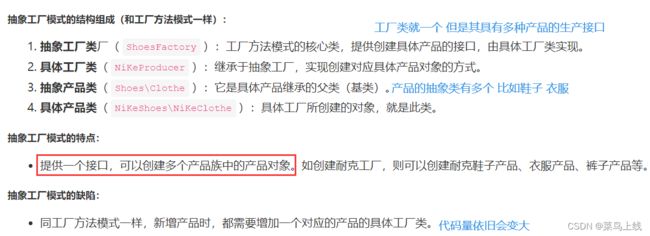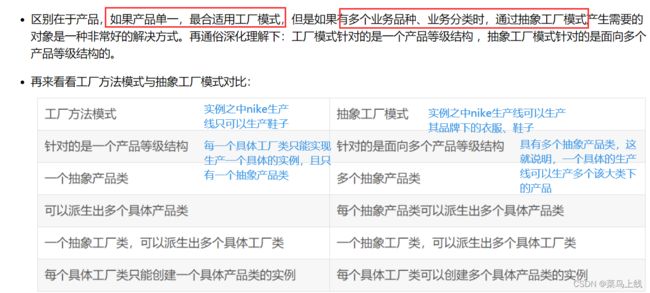60.排列序列-力扣(LeetCode)做法一:用c++中自带的next_permutation来做,在这里是不会超时的classSolution{public:stringgetPermutation(intn,intk){stringres;for(inti=1;ist(10);for(inti=0;i
虚幻新手C++入门
芙头帮帮主
虚幻c++游戏引擎
代码命名规则模版类:T前缀(如TArray,TMap,TSet)UObject派生类:U前缀AActor派生类:A前缀SWidget派生类:S前缀全局对象:G开头(如GEngine)抽象接口:I前缀枚举:E开头bool变量:b前缀其他的大部分以F开头(如FString,FName)typedef的以原型名前缀为准(如typedefTArrayFArrayOfMyTypes)在编辑器里和C#里,类型
C++学习(四)静态static
爆米花煮鸡蛋
C++学习学习c++开发语言
目录内存分配static介绍Static用法1.C/C++中1.全局静态变量2.局部静态变量3.静态函数总结:2.C++中1.静态成员变量2.静态成员函数总结内存分配一个程序在内存中的发布情况:(1)栈区(stack):由编译器自动分配和释放,如局部变量,函数参数,返回值等都是在栈区。会随着作用域的退出而释放空间。(2)堆区(heap):容量大于栈的容器,用于程序中的动态内存分配,由程序员进行内存
UEC++学习(十六)变量添加中文注释、ui设置中文文本
爆米花煮鸡蛋
UEC++学习学习c++ue4
(一)变量添加中文注释在C++项目中创建变量,并在蓝图中显示变量的英文名同时附带中文注释,可以使用UPROPERTY的ToolTip元数据属性来实现UPROPERTY(EditAnywhere,meta=(ToolTip="弹夹最大容量"))int32MagCapacity;(二)ui设置中文文本在C++中通过使用FString或FText来处理字符串时,字符串内容是以UTF-16编码存储的,但是
UE5C++编译遇到MSB3073报错
爆米花煮鸡蛋
ue5c++ue4
编译C++时遇到报错:错误MSB3073命令“"C:\ProgramFiles\EpicGames\UE_5.1\Engine\Build\BatchFiles\Build.bat"CSQFreewayEditorWin64Development-Project="D:\UE5_Project\SQGaoSu\CSQFreeway.uproject"-WaitMutex-FromMsBuild”已
C++11 for区间遍历:vector几种遍历方式
小桥流水人家_
C++
近来,基本上所有现代编程语言都有一种对一个区间写for循环的便捷方式。最终,C++也有了相同的概念;你可以给循环提供一个容器,它帮你迭代。example:#include#include#includeusingnamespacestd;intmain(){vectornum{3,7,1,7,9};//修改你正在迭代的容器的值,或者你想避免拷贝大的对象for(auto&it:num){coutnu
设计模式--建造者模式(C++实现)
zhang_zhilai
c++设计模式
创建型设计模式共5种:工厂方法模式、抽象工厂模式、单例模式、建造者模式、原型模式。建造者模式:适用于复杂对象的构建,可以将其一步一步的构造出来,能够更精细的控制构建过程(每一步都可以控制)。从上述UML图可以看出,抽象Builder聚合在Direactor类中,通过多态将RealBuilderA或RealBuilderB赋值给Builder。其中,RealBuilderA和RealBuilderB
聊聊Kotlin单例,从object单例,到带参数单例,论如何优雅的封装!
weixin_33859844
移动开发
一.序单例模式是我们在日常编程中,比较常用的设计模式。一个好的单例,必然需要满足唯一性和线程安全性。而Java中,关于单例的文章讲解已经很完善了,单例模式已经成为一种编程范式。在谷歌强推Kotlin的今天,不少人使用Kotlin时,还带着Java的编程思维,并没有有效的利用Kotlin的一些特性。如果还用Java的编程思想来写Kotlin的单例,会有种四不像的感觉。在Kotlin里,想要实现单例模
打卡信奥刷题(689)用C++信奥P8697[普及组/提高] [蓝桥杯 2019 国 C] 最长子序列
Loge编程生活
C++c++开发语言算法青少年编程数据结构
[蓝桥杯2019国C]最长子序列题目描述我们称一个字符串SSS包含字符串TTT是指TTT是SSS的一个子序列,即可以从字符串SSS中抽出若干个字符,它们按原来的顺序组合成一个新的字符串与TTT完全一样。给定两个字符串SSS和TTT,请问TTT中从第一个字符开始最长连续多少个字符被SSS包含?输入格式输入两行,每行一个字符串。第一行的字符串为SSS,第二行的字符串为TTT。两个字符串均非空而且只包含
为什么提到各种本地化部署模型软件时总要提到 llama.cpp?
风雅GW
人工智能llama人工智能机器学习LLMai
为什么提到各种本地化部署模型软件时总要提到llama.cpp?llama.cpp是一个完整的开源项目,而不是单独的.cpp文件。尽管名字里有“cpp”,它实际上指的是基于C++开发的一整套工具,用于高效地在本地运行大语言模型(LLM)。1.核心角色:为本地化LLM部署提供高效底层支持llama.cpp是许多本地化LLM部署工具的基础,它不仅是一个单独的工具链,更是一个通用的解决方案,其核心角色体现
ROS中可视化车辆运动路径-采用RVIZ进行显示
m0_46699649
人工智能算法c++自动驾驶
一:序言在进行机器人自动驾驶过程中数据分析必不可少,为了更方便我们进行处理和观看这个功能效果,进行可视化是必不可少的,车辆行驶路径往往是以路径点的信息进行保存,为了更直观看到显示的效果,可以将其在RVIZ上可视化出来。如果觉得学习了C++和ROS不知道怎么入手自动驾驶项目的可以参考这个项目,或者C++和ROS不是很熟练的我也推荐结合相关课程一块学习无人车采用纯跟踪算法跟随离线路径(ROS,C++实
Python爬虫保姆级入门教程
大模型贰贰
python爬虫python爬虫python零基础python入门
01前言Python非常适合用来开发网页爬虫,理由如下:1、抓取网页本身的接口相比其他静态编程语言,如java,c#,c++,python抓取网页文档的接口更简洁;相比其他动态脚本语言,如perl,shell,python的urllib包提供了较为完整的访问网页文档的API。(当然ruby也是很好的选择)此外,抓取网页有时候需要模拟浏览器的行为,很多网站对于生硬的爬虫抓取都是封杀的。这时我们需要模
python画与x轴平行_少儿编程:python趣味编程第一课
weixin_39762478
python画与x轴平行
本文仅针对8-16岁的青少年,所以流程是按如何去教好中小学生走的,并不适合成人找工作学习,因为进度也是按照青少年走的大家好,我是C大叔,从事少儿编程行业三年有余(2016年从事少儿编程行业,少儿编程概念是2015年在中国正式提出的)。一直以来都是在做scratch,JavaScript以及信息学奥赛C++的讲师,教研等工作,但目前发现python课程非常火爆,为了让小朋友也能更好的学python课
Python绘制汽车(完整代码)
Want595
Python趣味编程python开发语言
系列专栏《Python趣味编程》《C/C++趣味编程》《HTML趣味编程》《Java趣味编程》写在前面Python绘制一辆小汽车的完整代码。技术需求Turtle库基本操作:画笔控制:通过
linux系统服务器下jsp传参数乱码
3213213333332132
javajsplinuxwindowsxml
在一次解决乱码问题中, 发现jsp在windows下用js原生的方法进行编码没有问题,但是到了linux下就有问题, escape,encodeURI,encodeURIComponent等都解决不了问题
但是我想了下既然原生的方法不行,我用el标签的方式对中文参数进行加密解密总该可以吧。于是用了java的java.net.URLDecoder,结果还是乱码,最后在绝望之际,用了下面的方法解决了
Spring 注解区别以及应用
BlueSkator
spring
1. @Autowired
@Autowired是根据类型进行自动装配的。如果当Spring上下文中存在不止一个UserDao类型的bean,或者不存在UserDao类型的bean,会抛出 BeanCreationException异常,这时可以通过在该属性上再加一个@Qualifier注解来声明唯一的id解决问题。
2. @Qualifier
当spring中存在至少一个匹
printf和sprintf的应用
dcj3sjt126com
PHPsprintfprintf
<?php
printf('b: %b <br>c: %c <br>d: %d <bf>f: %f', 80,80, 80, 80);
echo '<br />';
printf('%0.2f <br>%+d <br>%0.2f <br>', 8, 8, 1235.456);
printf('th
config.getInitParameter
171815164
parameter
web.xml
<servlet>
<servlet-name>servlet1</servlet-name>
<jsp-file>/index.jsp</jsp-file>
<init-param>
<param-name>str</param-name>
Ant标签详解--基础操作
g21121
ant
Ant的一些核心概念:
build.xml:构建文件是以XML 文件来描述的,默认构建文件名为build.xml。 project:每个构建文
[简单]代码片段_数据合并
53873039oycg
代码
合并规则:删除家长phone为空的记录,若一个家长对应多个孩子,保留一条家长记录,家长id修改为phone,对应关系也要修改。
代码如下:
java 通信技术
云端月影
Java 远程通信技术
在分布式服务框架中,一个最基础的问题就是远程服务是怎么通讯的,在Java领域中有很多可实现远程通讯的技术,例如:RMI、MINA、ESB、Burlap、Hessian、SOAP、EJB和JMS等,这些名词之间到底是些什么关系呢,它们背后到底是基于什么原理实现的呢,了解这些是实现分布式服务框架的基础知识,而如果在性能上有高的要求的话,那深入了解这些技术背后的机制就是必须的了,在这篇blog中我们将来
string与StringBuilder 性能差距到底有多大
aijuans
之前也看过一些对string与StringBuilder的性能分析,总感觉这个应该对整体性能不会产生多大的影响,所以就一直没有关注这块!
由于学程序初期最先接触的string拼接,所以就一直没改变过自己的习惯!
今天碰到 java.util.ConcurrentModificationException 异常
antonyup_2006
java多线程工作IBM
今天改bug,其中有个实现是要对map进行循环,然后有删除操作,代码如下:
Iterator<ListItem> iter = ItemMap.keySet.iterator();
while(iter.hasNext()){
ListItem it = iter.next();
//...一些逻辑操作
ItemMap.remove(it);
}
结果运行报Con
PL/SQL的类型和JDBC操作数据库
百合不是茶
PL/SQL表标量类型游标PL/SQL记录
PL/SQL的标量类型:
字符,数字,时间,布尔,%type五中类型的
--标量:数据库中预定义类型的变量
--定义一个变长字符串
v_ename varchar2(10);
--定义一个小数,范围 -9999.99~9999.99
v_sal number(6,2);
--定义一个小数并给一个初始值为5.4 :=是pl/sql的赋值号
Mockito:一个强大的用于 Java 开发的模拟测试框架实例
bijian1013
mockito单元测试
Mockito框架:
Mockito是一个基于MIT协议的开源java测试框架。 Mockito区别于其他模拟框架的地方主要是允许开发者在没有建立“预期”时验证被测系统的行为。对于mock对象的一个评价是测试系统的测
精通Oracle10编程SQL(10)处理例外
bijian1013
oracle数据库plsql
/*
*处理例外
*/
--例外简介
--处理例外-传递例外
declare
v_ename emp.ename%TYPE;
begin
SELECT ename INTO v_ename FROM emp
where empno=&no;
dbms_output.put_line('雇员名:'||v_ename);
exceptio
【Java】Java执行远程机器上Linux命令
bit1129
linux命令
Java使用ethz通过ssh2执行远程机器Linux上命令,
封装定义Linux机器的环境信息
package com.tom;
import java.io.File;
public class Env {
private String hostaddr; //Linux机器的IP地址
private Integer po
java通信之Socket通信基础
白糖_
javasocket网络协议
正处于网络环境下的两个程序,它们之间通过一个交互的连接来实现数据通信。每一个连接的通信端叫做一个Socket。一个完整的Socket通信程序应该包含以下几个步骤:
①创建Socket;
②打开连接到Socket的输入输出流;
④按照一定的协议对Socket进行读写操作;
④关闭Socket。
Socket通信分两部分:服务器端和客户端。服务器端必须优先启动,然后等待soc
angular.bind
boyitech
AngularJSangular.bindAngularJS APIbind
angular.bind 描述: 上下文,函数以及参数动态绑定,返回值为绑定之后的函数. 其中args是可选的动态参数,self在fn中使用this调用。 使用方法: angular.bind(se
java-13个坏人和13个好人站成一圈,数到7就从圈里面踢出一个来,要求把所有坏人都给踢出来,所有好人都留在圈里。请找出初始时坏人站的位置。
bylijinnan
java
import java.util.ArrayList;
import java.util.List;
public class KickOutBadGuys {
/**
* 题目:13个坏人和13个好人站成一圈,数到7就从圈里面踢出一个来,要求把所有坏人都给踢出来,所有好人都留在圈里。请找出初始时坏人站的位置。
* Maybe you can find out
Redis.conf配置文件及相关项说明(自查备用)
Kai_Ge
redis
Redis.conf配置文件及相关项说明
# Redis configuration file example
# Note on units: when memory size is needed, it is possible to specifiy
# it in the usual form of 1k 5GB 4M and so forth:
#
[强人工智能]实现大规模拓扑分析是实现强人工智能的前奏
comsci
人工智能
真不好意思,各位朋友...博客再次更新...
节点数量太少,网络的分析和处理能力肯定不足,在面对机器人控制的需求方面,显得力不从心....
但是,节点数太多,对拓扑数据处理的要求又很高,设计目标也很高,实现起来难度颇大...
记录一些常用的函数
dai_lm
java
public static String convertInputStreamToString(InputStream is) {
StringBuilder result = new StringBuilder();
if (is != null)
try {
InputStreamReader inputReader = new InputStreamRead
Hadoop中小规模集群的并行计算缺陷
datamachine
mapreducehadoop并行计算
注:写这篇文章的初衷是因为Hadoop炒得有点太热,很多用户现有数据规模并不适用于Hadoop,但迫于扩容压力和去IOE(Hadoop的廉价扩展的确非常有吸引力)而尝试。尝试永远是件正确的事儿,但有时候不用太突进,可以调优或调需求,发挥现有系统的最大效用为上策。
-----------------------------------------------------------------
小学4年级英语单词背诵第二课
dcj3sjt126com
englishword
egg 蛋
twenty 二十
any 任何
well 健康的,好
twelve 十二
farm 农场
every 每一个
back 向后,回
fast 快速的
whose 谁的
much 许多
flower 花
watch 手表
very 非常,很
sport 运动
Chinese 中国的
自己实践了github的webhooks, linux上面的权限需要注意
dcj3sjt126com
githubwebhook
环境, 阿里云服务器
1. 本地创建项目, push到github服务器上面
2. 生成www用户的密钥
sudo -u www ssh-keygen -t rsa -C "
[email protected]"
3. 将密钥添加到github帐号的SSH_KEYS里面
3. 用www用户执行克隆, 源使
冒泡排序
>>>>>>>>>>>>>>>>>>>>>>>>>>>>>>>>>>
蕃薯耀 2015年6月23日 10:40:14 星期二
http://fanshuyao.iteye.com/
Excle读取数据转换为实体List【基于apache-poi】
hanqunfeng
apache
1.依赖apache-poi
2.支持xls和xlsx
3.支持按属性名称绑定数据值
4.支持从指定行、列开始读取
5.支持同时读取多个sheet
6.具体使用方式参见org.cpframework.utils.excelreader.CP_ExcelReaderUtilTest.java
比如:
Str
3个处于草稿阶段的Javascript API介绍
jackyrong
JavaScript
原文:
http://www.sitepoint.com/3-new-javascript-apis-may-want-follow/?utm_source=html5weekly&utm_medium=email
本文中,介绍3个仍然处于草稿阶段,但应该值得关注的Javascript API.
1) Web Alarm API
&
6个创建Web应用程序的高效PHP框架
lampcy
Web框架PHP
以下是创建Web应用程序的PHP框架,有coder bay网站整理推荐:
1. CakePHP
CakePHP是一个PHP快速开发框架,它提供了一个用于开发、维护和部署应用程序的可扩展体系。CakePHP使用了众所周知的设计模式,如MVC和ORM,降低了开发成本,并减少了开发人员写代码的工作量。
2. CodeIgniter
CodeIgniter是一个非常小且功能强大的PHP框架,适合需
评"救市后中国股市新乱象泛起"谣言
nannan408
首先来看百度百家一位易姓作者的新闻:
三个多星期来股市持续暴跌,跌得投资者及上市公司都处于极度的恐慌和焦虑中,都要寻找自保及规避风险的方式。面对股市之危机,政府突然进入市场救市,希望以此来重建市场信心,以此来扭转股市持续暴跌的预期。而政府进入市场后,由于市场运作方式发生了巨大变化,投资者及上市公司为了自保及为了应对这种变化,中国股市新的乱象也自然产生。
首先,中国股市这两天
页面全屏遮罩的实现 方式
Rainbow702
htmlcss遮罩mask
之前做了一个页面,在点击了某个按钮之后,要求页面出现一个全屏遮罩,一开始使用了position:absolute来实现的。当时因为画面大小是固定的,不可以resize的,所以,没有发现问题。
最近用了同样的做法做了一个遮罩,但是画面是可以进行resize的,所以就发现了一个问题,当画面被reisze到浏览器出现了滚动条的时候,就发现,用absolute 的做法是有问题的。后来改成fixed定位就
关于angularjs的点滴
tntxia
AngularJS
angular是一个新兴的JS框架,和以往的框架不同的事,Angularjs更注重于js的建模,管理,同时也提供大量的组件帮助用户组建商业化程序,是一种值得研究的JS框架。
Angularjs使我们可以使用MVC的模式来写JS。Angularjs现在由谷歌来维护。
这里我们来简单的探讨一下它的应用。
首先使用Angularjs我
Nutz--->>反复新建ioc容器的后果
xiaoxiao1992428
DAOmvcIOCnutz
问题:
public class DaoZ {
public static Dao dao() { // 每当需要使用dao的时候就取一次
Ioc ioc = new NutIoc(new JsonLoader("dao.js"));
return ioc.get(

